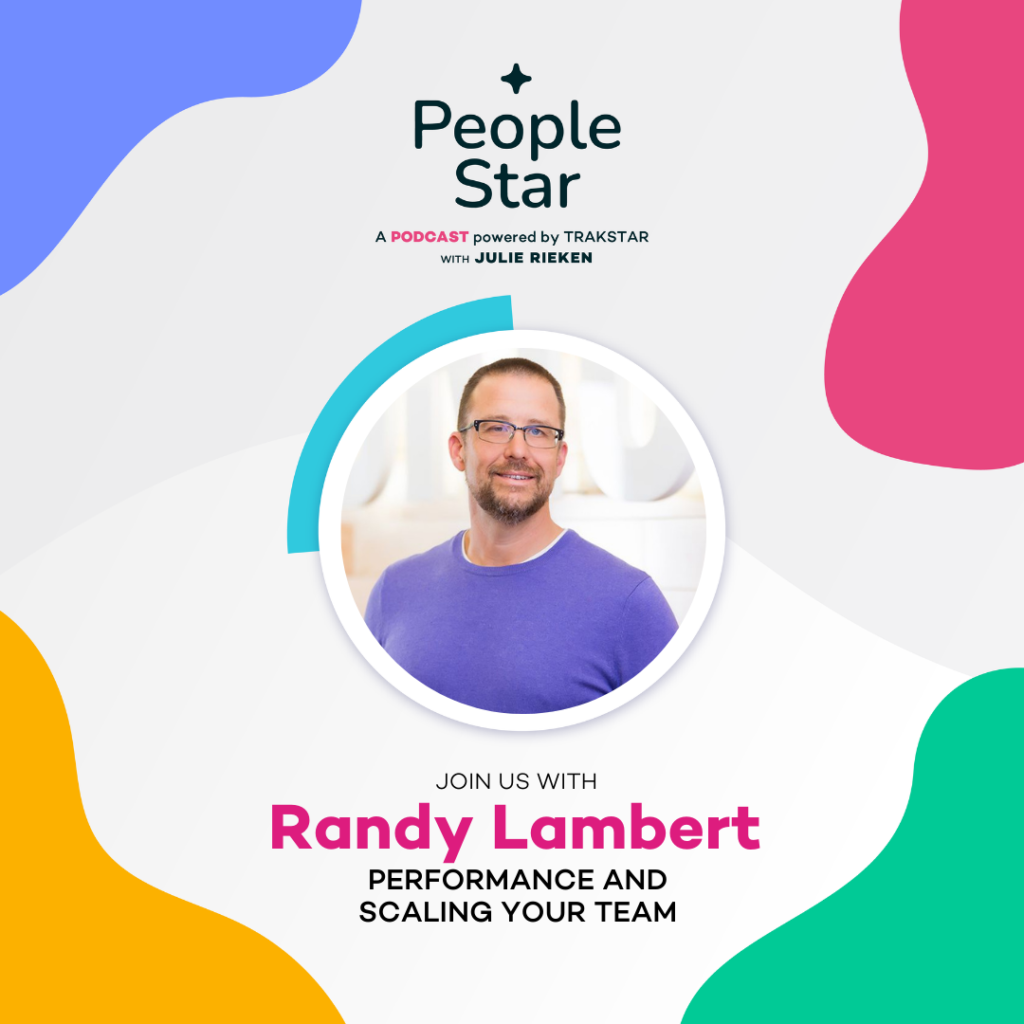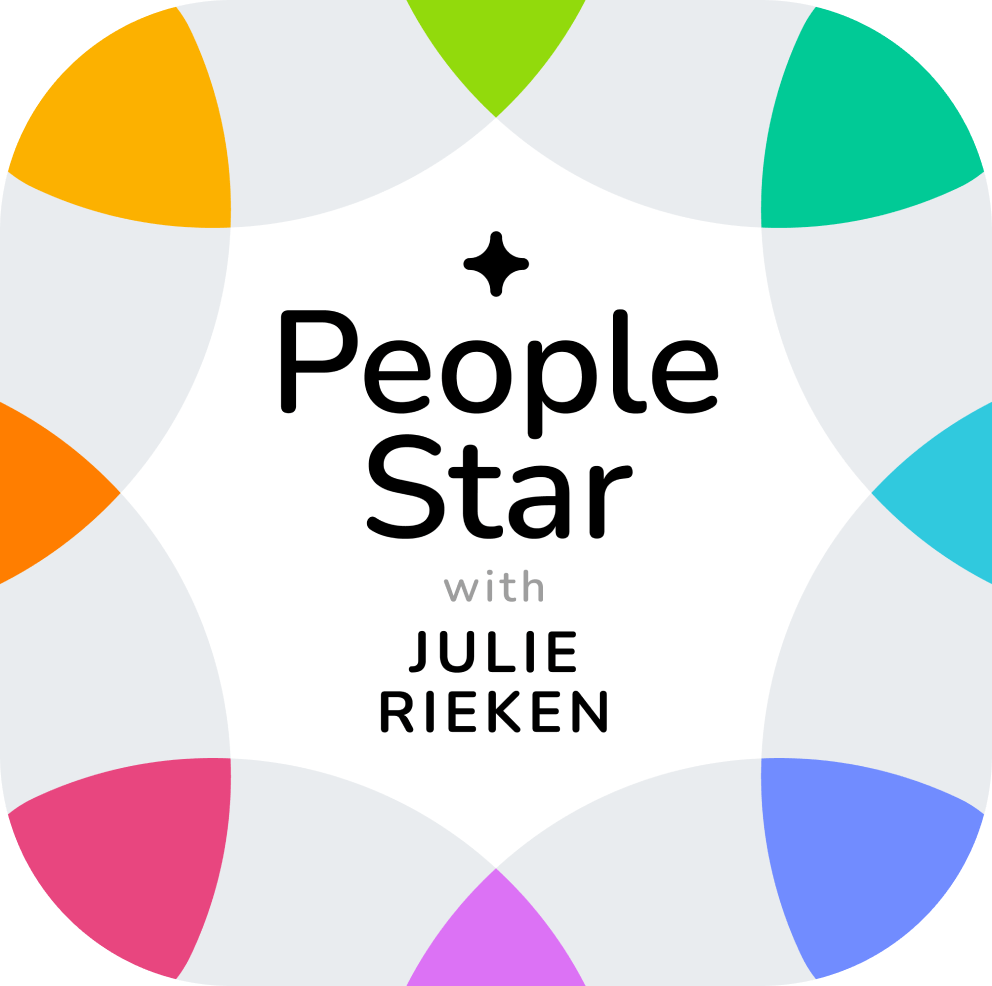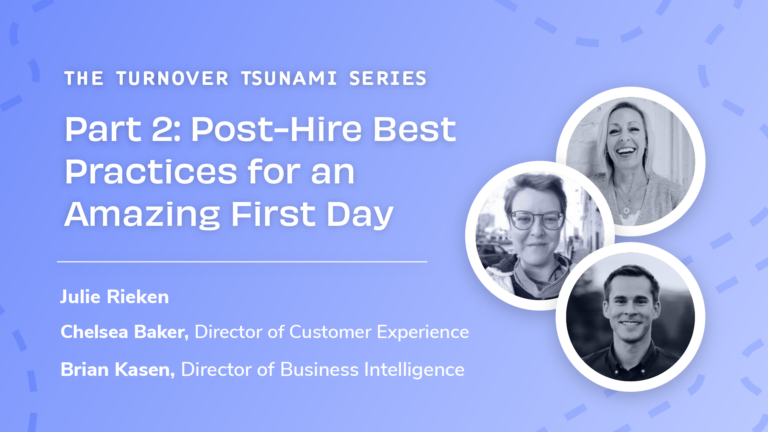People Star Podcast_Randy Lambert: this mp3 audio file was automatically transcribed by Sonix with the best speech-to-text algorithms. This transcript may contain errors.
PeopleStar Podcast Intro:
Welcome to the PeopleStar podcast. We deliver leadership perspectives from industry experts on their people, architecture, routines, and culture as they solve HR's newest challenges. And now your host, Julie Rieken.
Julie Rieken:
Hello, welcome to the PeopleStar podcast, I'm Julie Rieken, the host, and I'm so excited today to have Randy Lambert with me. Randy is the chief operating officer at Orion out of Omaha, and Randy has some phenomenal perspectives to share with us today on being a leader in a large organization and the way that he's thought about it. And Randy, I'm so excited to have you here on the podcast and to share some insights with us today!
Randy Lambert:
Well, thank you, Julie. It's great to be here. I appreciate you making some time for me and I look forward to having some fun with this. One of the things I just wanted to, you know, you had some questions and scale's one of them, and one of the things that I had to do as a leader is learn how to scale. And really, that comes down to trusting people and allowing them to do things and helping them grow. And so I kind of came up with three things that are really important for our operations team to hit three primary goals. One is that we're going to grow our business as a kind of compound annualized growth rate of 20 percent. Another aspect of our operations team is that we're going to scale and that's, we try to have a 50 percent margin on that. And then the third thing we try to do is have a great experience for our clients and that we use a net promoter score of 60. So within that context, there's behaviors and things that we've got to do. And so with that, there's three kind of behaviors. One is a recruiting mindset. We've got to bring as many great people into our organization as we can, and we do that through with our HR team, with each other, and just helping bring in great prospects. The second aspect of that is we've got to recruit each other internally. And so who on our team is performing well? Can we recognize that person, that sort of thing? And then how do we keep the person on our left and the person on the right happy and our interactions, those sorts of things. But that's a daily thing. Every day I come to work, how am I going to recruit my teammates this today? And so that's very important. So recruit's number one, number two is having a change agent mindset versus a hey, change is going to happen and just kind of flowing with the wind that as it twists us and a change agent, it's really important for us to provide feedback, whether it's vertically or horizontally or down low. But we've got to provide feedback. Then decisions have to be made, and so this is a part where I kind of struggle a little bit, with decisions. Sometimes I thought, hey, my decision is the best one. Well, no, there's normally going to be three ways to get to the goal. And so when a decision is made, I got to get on board with that personally, and then I got to try to get other teammates on board with that as well, because there's more than one way to get to it. And then the third thing is, once we get, I get on board, our team gets on board, just provide more feedback. So that's a change agent loop that has become really important from a behavior standpoint with our organization. And the third thing, real fast, is just a growth mindset and versus the status quo, this is how we do things here, what am I going to do to grow? How am I going to get better tomorrow? What are some things I can do outside of work to get better? What are things I can do in the work space to get better? Those are some things that we focus on from a value standpoint in our operations and try to create a culture with that those three things.
Julie Rieken:
That is, I think it's fascinating and I love to hear from other leaders on the things that they think about and the markers that they place inside their organization that help guide them for decisions, and I love your three recruit, change agents, and growth mindset. It feels like you have a great team in your operations group, and I love those guideposts.
Randy Lambert:
Well, thank you. I appreciate it. You know, part of what we do is we, to reinforce those behaviors, we have several things that we do within the organization. It starts with coaching, and so we like to view ourselves as a coaching culture. Instead of having annual reviews, we have 90-day coaching sessions where the employee provides inputs to the supervisor, the supervisor reacts to those and provides feedback and goals for that individual. And then they have a third meeting where they get together and agree upon what, for the next 90-days, what they're going to focus on personally to help move towards our goals that we talked about earlier. So that's one of the things that we do, is that 90-day coaching. The other thing we do is just on a daily basis, we have recognition programs that people can tool called bonusly, that we, I'm able to, hey, Julie was great today, she really helped me with this and it gives you some bonusly points, and then you can spend those in our, you know, like on Amazon and use that. So we have that way of encouraging one another. And then we also have a daily pulse. So you've seen these probably in different places where you have a green, yellow and red, how was your day, if it's green and then you can share a comment of it's why it was green and those are things that our management team looks at on a monthly basis and kind of sees if there's problems, you know, one of their employees is not having such great time and those sorts of things, that's a way for our employees to provide them feedback. So those are just some really quick hitters. We also have an employee NPS that we do once a quarter as well. What tells us how we're doing and allows our managers to take a look at that from a macro perspective.
Julie Rieken:
Super interesting. The thing that I'm really impressed with here is, here you are, you're on operations. But the things that you're telling me about are really cultural pieces that you've put in place and you also have metrics associated with them. But when I think operations, what I'm hearing from you is how you've established culture around operations. And that, to me, is a super cool connection. Have you ever thought about how you, has that occurred to you, that that's so deliberate for you?
Randy Lambert:
Well, I just know, it's a cliché, but your people are your most important resource and you hear that often, but what are you doing to develop those people? What are you doing? You know, we have a lot of employees that take jobs with our clients. Well, that's a great outcome for them. It's good for us and it's good for that employee. So I have a mindset when a new person joins our team, how am I going to help them grow? How are they going to have a great experience here? And so you've got to have a culture around that. It's not transactional, where we just hired you and you're going to do, you're going to put these widgets together. We want to have you contributing to our company and we also want to contribute to our clients. And so I don't know any other way to do it other than to help get them on board with those concepts.
Julie Rieken:
Randy, this has been so interesting. While I would like to ask you even more questions, I feel like the things that you've given us here today are things I'm going to have to even think about and chew on for our own organization. And they're so helpful between the way that you think about culture and the way that you think about approaching people and providing them with great experiences. This has been super helpful. I've learned a ton today.
Randy Lambert:
Well, thank you. Appreciate it. Glad to share that with you and wish you the very best!
Julie Rieken:
Thanks, Randy!
PeopleStar Podcast Outro:
Thanks for listening to the PeopleStar podcast. For the show notes, transcript, resources, and more ways to get a seat at the table, visit us at Trakstar.com/Podcast.
Sonix has many features that you’d love including enterprise-grade admin tools, automated subtitles, automated translation, advanced search, and easily transcribe your Zoom meetings. Try Sonix for free today.




